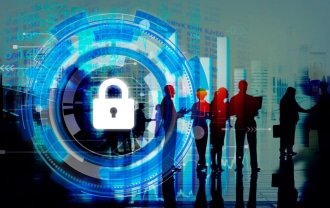By Doriel Abrahams, Head of Risk, U.S.
The Super Bowl and NBA All-Star weekend are behind us, which means one thing for sports fans — March Madness is nearly here!
Unfortunately, like other significant sporting events, it’s also on fraudsters’ radars. Forter has found that tickets for major sporting events, such as the Super Bowl or related to the NCAA Division I Men’s Basketball Tournament, are more than 4x more likely to be targeted than other more low-key events during the year.
Why? Because March Madness ticks all a fraudster’s boxes.
Why Fraudsters Love March Madness
If we break down the characteristics of the March Madness ticket sales, a picture of ideal conditions for fraudsters emerges.
- High value: Fraudsters are all about the ROI — they want to be able to invest minimal effort for maximum payoff. There’s always a balance in terms of the number of items versus the price of an individual item and the number and velocity of the attacks. But what’s so attractive about March Madness tickets is that they are, by nature, pricey items. Moreover, fans often buy in groups to go to the event together, making sales with multiple tickets also ordinary. There’s nothing suspicious about a purchase for a high dollar figure.
- Incentive to avoid the official seller: Fans who want the “Official NCAA Experience,” a hospitality upgrade that includes private lounge access, food, and drink, purchase directly from the NCAA. Many fans don’t want the upgrade (and its associated cost) — meaning they’re incentivized to look elsewhere for their tickets. That gives fraudsters a thriving market to tap into.
- Limited number of tickets: Fraudsters always need to consider how easily they’ll be able to find a buyer for their stolen goods; no buyer, no way to monetize the theft. That’s no problem with hugely popular events with limited numbers of tickets.
- The need for speed: Fans will often hold off purchasing tickets until they know whether their team is advancing to the next stage of the competition. That means there’s a rush to buy at the last minute — making it easier for fraudsters to hide in the rush.
- Pressure on manual review teams: With 67 games over three weeks, March Madness is intense, and fraud-fighting teams sometimes struggle to keep up, especially since so many purchases happen in a flood once the results from an earlier match are known. Fans want to know they’ve got their tickets immediately, so there’s limited time for an in-depth investigation. Fraudsters know that and realize they can capitalize on it.
- One reason Forter is typically so effective at cutting chargebacks for ticketing companies, generally by 20%-50%, is that Forter’s system is built to work in real-time, meaning that the added pressure of intense events like March Madness isn’t a problem.
Timing & Volume vs. Value
The timing of the fraud attacks in March Madness is interesting both in itself and in what it says about fraud attacks more generally.
The culmination of March Madness is, of course, the Final Four. So it’s natural to imagine that fraudsters would concentrate their efforts there as well — but, in a way, the opposite is true.
The most significant fraud spikes are typically seen during the tournament’s first round!
This sounds bizarre until you start to think it through. Fraudsters don’t want to attend the matches; they’re in it for maximum monetizable ROI. In the first round, the most teams are playing. So not only are there the maximum possible number of attack targets, but there are also a lot of folks looking to buy tickets for their team’s games and a tremendous amount of pressure on fraud teams. It’s an excellent opportunity for a fraudster.
But that’s when we’re looking at the volume of attacks. When we look at value, though, the picture is very different. Tickets for the Final Four are so valuable that even though only ~10% of March Madness fraud attacks are clustered against that stage, the attacks represent ~25% of the value of all fraud attempts targeting the entire March Madness tournament.
This is such a critical point in terms of fraud analysis. “Which part of the tournament do fraudsters attack most?” has two correct, different answers — depending on what you meant by the question. When we turn to our data with questions, we need to be precise, ask the right questions, and be open-minded because sometimes the data will take us to answers we didn’t expect.
Don’t Ignore Account Takeovers
Fraud during March Madness has traditionally been largely standard credit card fraud — though it’s worth noting that on secondary marketplaces, fraudsters act as both buyers and sellers, so there is that added layer of complexity.
Recently, though, Forter has noticed that ATO attempts against ticketing sites have started to creep up. Looking at the current data, I see that ATO attempts against ticketing sites have increased by 36% compared to 3 years ago.
This resembles part of a bigger picture in which the pendulum is swinging back to a greater emphasis on ATO. Fraud teams have become so effective at stopping fraud at checkout that, frustratingly, fraudsters are looking for weaknesses elsewhere — and especially where accounts are concerned.
Putting March Madness into that broader context, ticketing companies need to put extra thought into account protection during this time and prevent fraud at checkout. With ATO ticking up across the board, there’s no reason to suppose that March Madness will be an exception.
March Madness is Intense — But Not Alone
March Madness can feel disconnected from the rest of the year because it’s such an intense period in terms of highs and lows for fans, the sheer number of matches in a short time, and ticket sales.
As the ATO point highlights, though, it’s important to remember that these ticket sales happen within the context of everything else that’s going on in ticketing, digital commerce, and fraud prevention.
It’s been a time when we’ve seen significant scale and sophistication from a highly organized fraud ring, a rise in amateur fraudsters, resellers evolving, dangers from fake accounts, and more. Fraudsters are getting creative about increasing their reach and angles of attack.
If there’s one thing we can say about March Madness this year, fraud fighters can’t afford to be complacent. Because we know the criminals won’t be.



